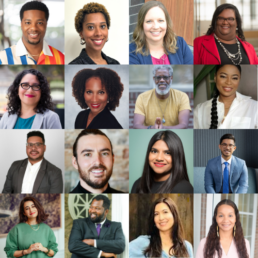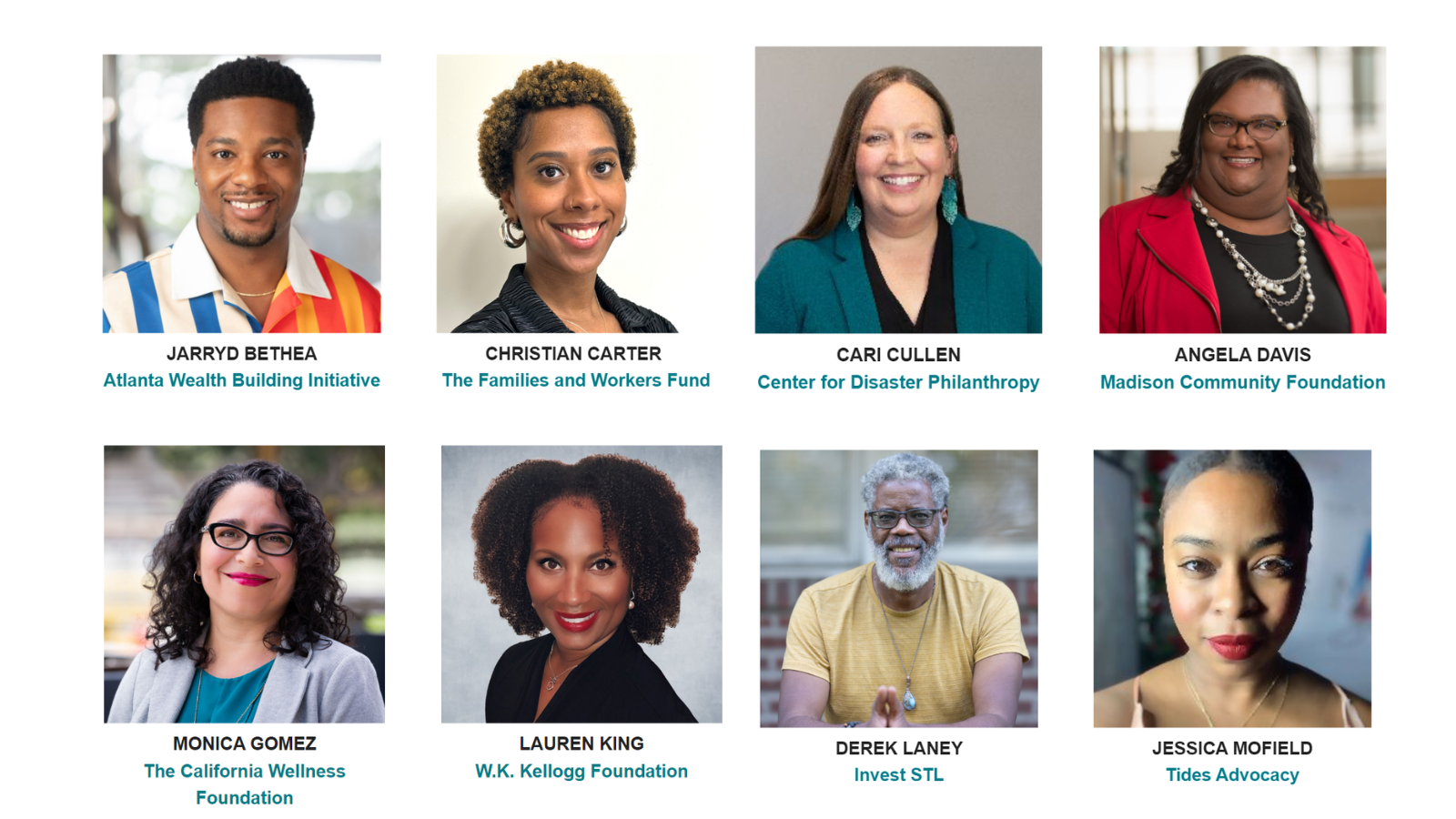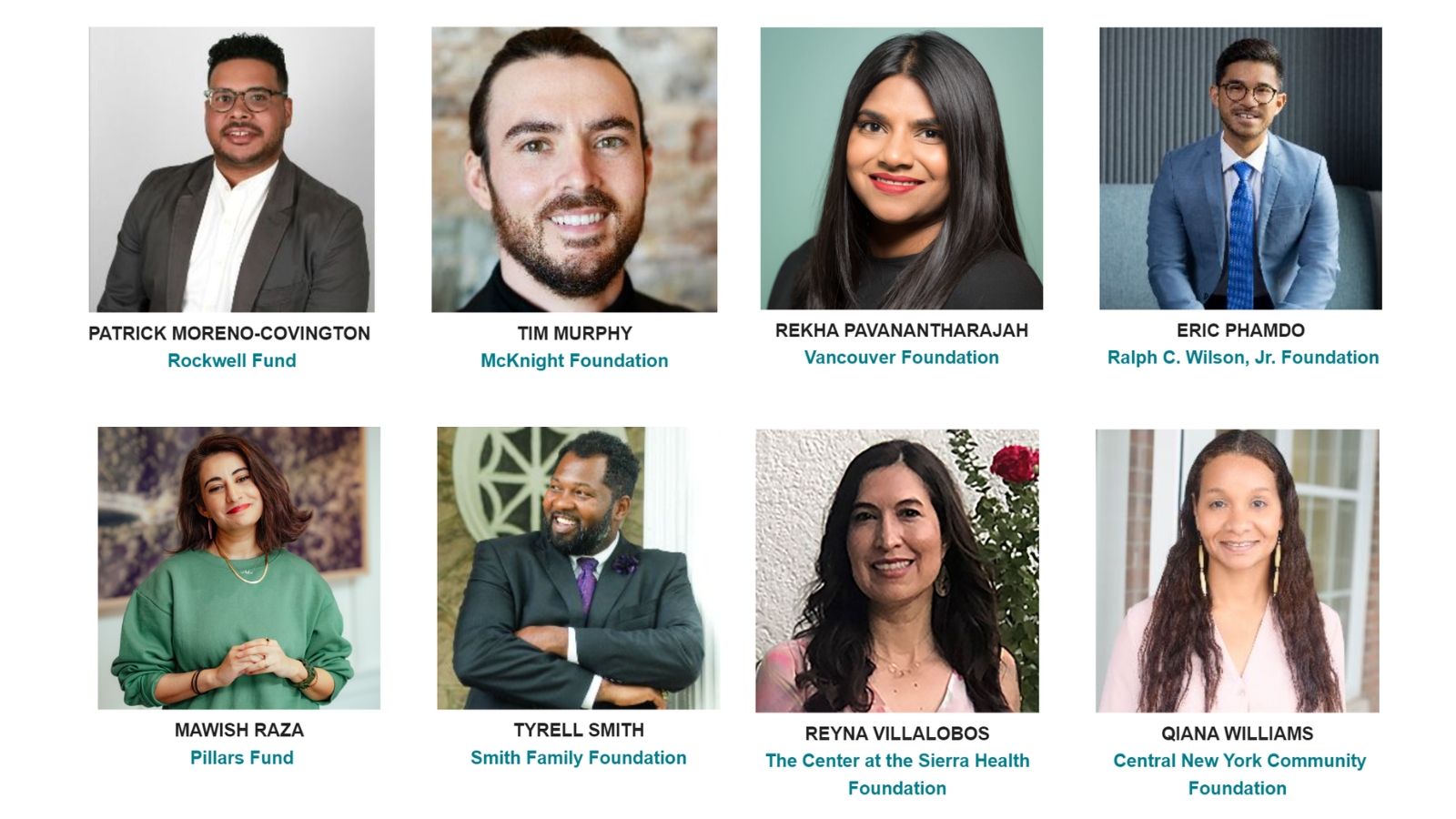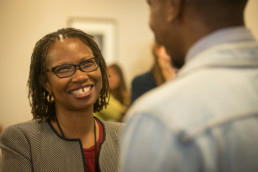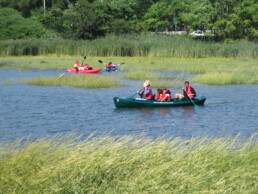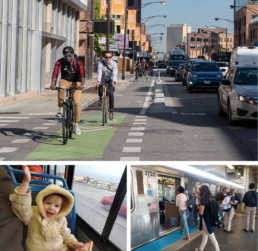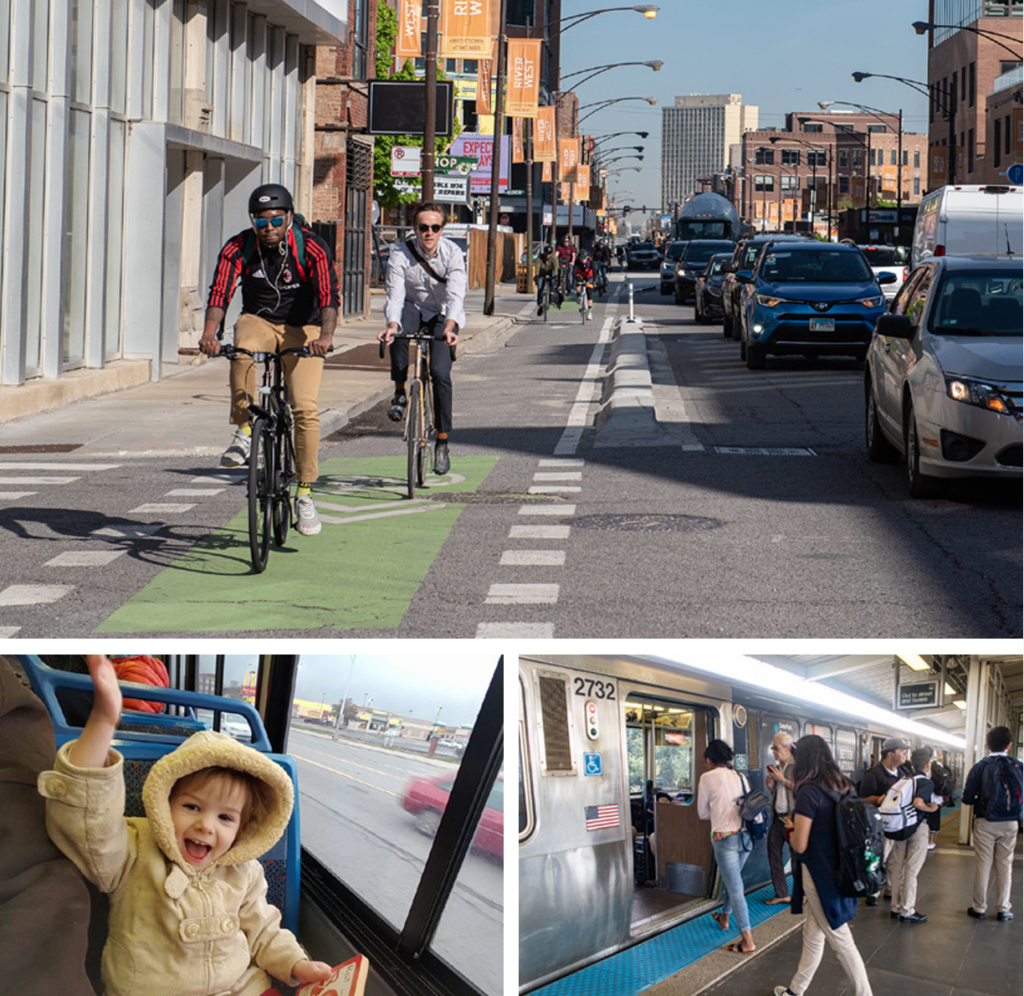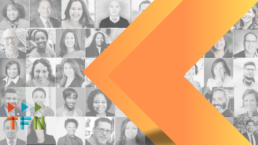Meet TFN's 2024 PLACES Fellows!
BY Dion Cartwright, TFN President & CEO
Today is one of my favorite days on The Funders Network’s calendar.
Each year since I’ve been part of TFN, I’ve greeted the day we announce the new cohort of PLACES Fellows with a sense of celebration – and not just because I’m a PLACES Alum myself.
It’s because today marks the beginning of an intense but empowering learning journey for a new group of exceptional leaders in philanthropy.
They’ll work together to deepen their understanding of structural racism. They’ll travel together to learn from community advocates, activists and those most impacted by injustice.
And they’ll challenge each other to unpack their own professional and personal biases.
These 16 new PLACES Fellows – who represent a wealth of expertise and lived experiences, and hail from diverse geographies and backgrounds – embody a core element of TFN’s guiding principle.
TFN’s vision is to cultivate generations of courageous philanthropic leaders who are engaged, emboldened and equipped to bring about a just society.
Over the past decade, PLACES, which stands for Professionals Learning About Community, Equity and Sustainability, has welcomed nearly 200 leaders in philanthropy committed to moving resources in service of environmental, economic and racial justice.
PLACES Alums are among the most passionate ambassadors for equity and justice in the sector, enriching their institutions and the field of philanthropy as a whole.
The PLACES Fellowship is designed to help grantmakers incorporate an equity and justice lens into their grantmaking and community engagement practices. Over the years, PLACES cohorts have addressed issues impacting disenfranchised communities, including gender justice, health equity, environmental sustainability and economic development — asking difficult questions and exploring uncomfortable truths.
I’m excited to see how the 2024 PLACES Cohort turns their eight months of learning into meaningful action and impact.
On behalf of the selection committee, TFN’s Equity Programs Manager Talissa Lahaliyed and the PLACES Advisory Board, join me in congratulating these outstanding 2024 PLACES Fellows!
2024 PLACES Fellows
About PLACES
The PLACES Fellowship is supported by The Funders Network and the generous contributions of various organizations. Key supporters include the JPB Foundation, Kresge Foundation, Loom Foundation and Surdna Foundation.
Fellows are selected during a highly competitive selection process that includes several key factors, including but not limited to:
• Applicants have demonstrated personal commitment to advancing racial equity personally or in their work.
• Their grantmaking institution’s organizational commitments (i.e., population served, equity commitments, organizational values, and support of communities of color and/or low-income communities).
• Applicant’s sphere of influence within the organization and beyond; and
• TFN’s intentional efforts to create cohorts that are geographically, demographically and culturally diverse of cohort.
Going PLACES Blog Series
After each PLACES site visit, we ask the Fellows to reflect on their experiences. Check out recent contributions from PLACES Alums in our Going PLACES blog series.
Questions?
If you would like to know more about PLACES, including ways your organization can invest in our equity-focused PLACES Fellowship and Alum Network, email Equity Programs Manager Talissa Lahaliyed at places@fundersnetwork.org.
About the Author
Dion Cartwrigh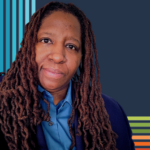 t is President and CEO of The Funders Network and a 2011 PLACES Fellow.
t is President and CEO of The Funders Network and a 2011 PLACES Fellow.
Be Bold. Be Courageous: Final thoughts on my last day at TFN
BY Pat Smith, President & CEO
How will I measure the more than five years I’ve been with The Funders Network?
In months? (67.)
In days? (2,020.)
By Zoom meetings? (Too many to count.)
However you do the math, the truth is my time with TFN can’t be quantified by any simple calculation.
And this network — its members and partners, its team of staff and contractors, its mission-driven work — is so much more than the sum of its parts.
As I wrap up my final day at TFN, I’m grateful for what we’ve accomplished together in the last five years: The network is a thriving and robust community of funders and allies that has grown — both in size, scope and resources — since I joined its ranks on July 2, 2018.
We’ve worked to explicitly center racial equity in all of our many programs and partnerships. We’ve created space for funders, both at in-person events and virtual learning sessions, to better understand and explore the connection between their specific funding areas and the systemic inequities that stand in the way of true progress. We’ve deepened our engagement with experts and advocates in the social sector to share opportunities for action and collaboration.
But I’m also humbled by the work that still needs to be done.
The Road Ahead
While TFN’s commitment to racial equity is foundational and cross-cutting, we can’t ignore that the values of diversity, equity and inclusion — the very tools needed to build a just and liberated future — are under assault.
The Supreme Court’s decision to overturn affirmative action in higher education, as well as legal and political broadsides attacking DEI programs in classrooms and boardrooms, worries me deeply.
I encourage you, as funders and allies deeply committed to the communities you serve, to use your collective voices — and institutional resources — to double down on the need to embed racial equity in your grantmaking.
Philanthropic decisions should include the voices of the people and communities most affected by structural racism, including those on the front lines of the climate crisis and those facing increasingly steep barriers to economic opportunity and mobility.
TFN member organizations have the power to advocate for policy change, fund research, convene changemakers, and amplify the lived experiences of those most impacted by systemic harm.
Together, you have the power to advance intersectional solutions that can help undo decades of disinvestment and under-resourcing in Black, Indigenous and other communities of color.
This work is critical to TFN’s mission, which is to leverage philanthropy’s unique potential to help create communities and regions that are sustainable, prosperous, healthy and just for all people.
That’s why it is essential that we, as a network and as a sector, must foster generations of courageous philanthropic leaders who are engaged, emboldened and equipped to bring about a just society.
I am honored to pass the baton to my colleague, TFN’s incoming President & CEO Dion Cartwright, who has proven herself to be both bold and courageous. Since my first day at TFN more than five years ago, I’ve known Dion to be an advocate for change in the philanthropic sector and one of the driving forces behind TFN’s explicit commitment to racial equity.
Heartfelt Thanks
I’m grateful to Dion and the rest of TFN’s talented team for their dedication and camaraderie over the past five years, including the challenges and disruptions we all faced at the height of the pandemic.
I’m also grateful for the counsel, support and leadership of TFN’s Board of Directors and our funder-led steering committees — and the countless other funders and partners who have volunteered their time in service of our mission.
And while I’ve promised myself (and my partner, Elbert) that I’ll try to embrace a Zoom-free future in my retirement, please know that you can always find me on LinkedIn.
I’m excited and hopeful to see what the future has in store for TFN.
Wishing you all a wonderful Martin Luther King Jr. Day and a joyful and just 2024.
Visits TFN Instagram to see some of our favorite memories of Pat's tenure.
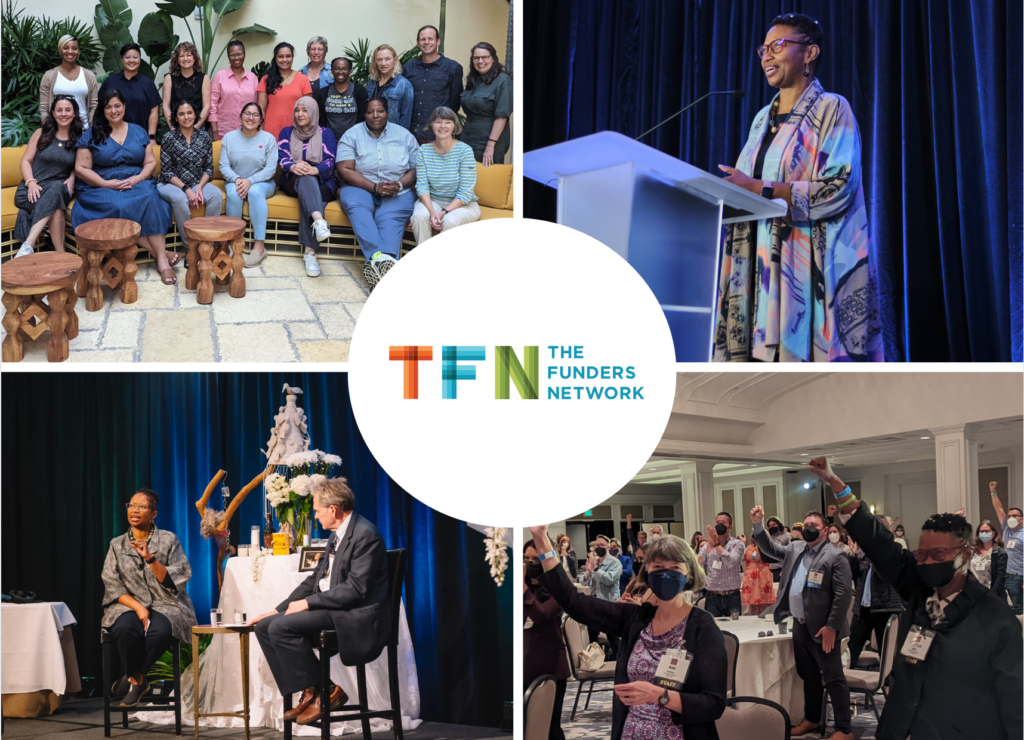
What's in store for 2024? Check out TFN events, professional development for funders & more!
BY TFN Staff
As we approach the New Year, we wanted to take a moment to thank our community of funders, partners and allies.
TFN is a diverse network of more than 130 foundations across the U.S., from small, rural community organizations to large urban foundations.
Our members reflect a broad spectrum of place-based philanthropic efforts — working to tackle the climate crisis, expand economic opportunity, improve health outcomes, reimagine built environments, safeguard civil liberties, and forge community power and collaboration.
But we’re connected by a common thread that runs through all of TFN’s many working groups, partnerships and learning cohorts: Our commitment to addressing the systemic racial inequities that stand in the way of building a more just and compassionate world.
This work can be complex and often frustrating, especially when we reflect on the many ways communities are challenged and marginalized people are oppressed — both at home and across the globe.
We hope this season offers a chance to connect with the people and places that bring joyful purpose to your work, and to reflect on the opportunities for change in the year to come.
TFN will be closed Dec. 25 to Jan. 2, but we're ready to kick off 2024 with events and programs designed to amplify your grantmaking impact, hone your professional skills and deepen your engagement with other leaders in the sector.
We'll also share insights and reflections as we move forward with TFN's leadership transition, bidding a fond farewell to our outgoing President & CEO Pat Smith and welcoming our colleague Dion Cartwright as she steps into her new role as head of the network.
If you're new to our community, we hope you'll take a moment to explore our work and learn about the benefits of joining TFN's membership.
Read on to learn more about just a few of the things we have in store for 2024!

We’re excited for our Spring Convening of funders engaged in TFN working groups focused on climate and sustainability, urban water issues, and transportation, mobility and access.
Newcomers are welcome! Any funder interested in these focus areas is invited to attend the convening, which takes place March 27-28 in Austin, Texas. Click here for registration rates, lodging and other info.

Applications for the 2024 PLACES Cohort are now open! TFN’s PLACES Fellowship is an eight-month learning journey designed to help grantmakers embed the values and practices of environmental, economic and racial justice into their work. The deadline to apply is Jan. 5, 2024. Learn more and access the application here.
More PLACES news:
- Mark your calendars for a three-part leadership coaching series March 8, 15 and 22 from 1-2:30 p.m. ET/ 10-11:30 a.m. PT with Bina M. Patel, PLACES alum and facilitator, and author of Say The Quiet Part Out Loud: Liberate Your Inner Changemaker. Keep an eye out for registration info in early January.
- PLACES is launching a virtual commuity of practice for PLACES alums in executive positions. Participants will meet bi-monthly starting in February. Please fill out this interest form if you’d like to participate and we'll get back to you with next steps.
- Save the date for the 2024 PLACES Alum Gathering, Aug. 8-9 in Chicago!

TFN, in partnership with the Urban Sustainability Directors Network (USDN), has openned the latest round of the Partners for Places grant program.
The deadline to submit proposals is Feb. 27.
This matching grant program improves communities by supporting equitable sustainability projects that build partnerships between local government leaders, frontline community groups and place-based funders in the U.S. and Canada.
Learn more about the latest grant opportunity and application requirements.
More Partners for Places resources:
- Register for our Round 21 Informational Webinar designed to help potential applicants prepare proposals, Jan. 17 at 3 p.m. ET.
- Learn about Partners for Places grantmaking impact in 2023.

Smart Growth California’s Funder Summit takes place March 4-6 in Sacramento. The Summit is where California-focused funders share, learn and collaborate on work that advances a common vision – creating sustainable, equitable communities across California’s diverse landscape. Register here.
More Smart Growth California events:
- Smart Growth California's LA Funders' Collaborative meets Jan. 26, and the Climate Funders' Collaborative (Baja, Imperial, San Diego) meets Jan. 29. Reach out to Ron Milam for more information.

Coming soon!
Stay tuned for the premiere of Reel Change: A TFN Virtual Film Series — our first ever virtual film series showcasing documentaries and short films focused on racial, social and environmental justice.
The series kicks off in 2024 and will include virtual conversations with filmmakers, activists and funders focused on storytelling and narrative change.

Don't forget to sign up for TFN's Member Portal!
This password-protected, member-only portal is designed to support collaboration, deepen understanding and spark connections within our network and beyond.
Our peer-to-peer platform will allow TFN members to access a searchable database of funders and learning resources and recordings. You'll also be able to update your individual TFN profile and engage with our working groups.
How do you access TFN's Member Portal? Just fill out our simple sign-up form. You'll then receive a welcome email with your username and login instructions.
We look forward to staying connected in 2024!
"Holiday background with a sparkler" by wuestenigel is licensed under CC BY
Want to increase your grantmaking impact and revitalize local news flows? Consider funding local media collaboratives
The Funders Network is committed to sharing the stories and strategies of our members, partners and others in the philanthropic sector working to create more sustainable, prosperous and equitable communities. Today, we’re sharing a guest blog post from the Solutions Journalism Network and Center for Cooperative Media at Montclair State University highlighting philanthropic support to local news collaboratives, including work funded by TFN members Springpoint Partners, the Ralph C. Wilson Jr. Foundation, and the Walton Family Foundation. Solutions Journalism Network is also supported in part by the Robert Wood Johnson Foundation, another TFN member.
BY Liza Gross, Solutions Journalism Network, and Stefanie Murray, Center for Cooperative Media at Montclair State University
It’s no secret the journalism industry has endured massive, foundation-shifting changes over the last few decades.
The rise of search engines, the advent of social media and even the recent growth of machine-learning and artificial intelligence have all fundamentally changed the way people find, consume and understand news and information. The media landscape is fractured; mass media is no more. Societies today share information through multiple channels, in constant streams.
This is a key reason why collaboration has become so important in the media landscape. Fifty years ago, most cities had perhaps a handful of news sources: A newspaper, maybe a TV station and magazine or radio station. Today those options have been joined by news nonprofits, hyperlocal digital websites, active Facebook groups, local newsletters, texting groups and more.
Journalism collaboratives are an effective way to knit those sources together and help direct their efforts in ways that have broad, positive community impact.
There are at least 40 permanent journalism collaboratives in the United States alone, according to research from the Center for Cooperative Media at Montclair State University. The collaboratives are usually run by a project manager and include all kinds of journalism partners as well as community-based organizations, multicultural outlets and other local institutions. Their work is often project-focused, and the Center has found the projects often have a solutions, humanitarian, democratic or investigative angle.
The majority of U.S. journalism collaboratives have been launched and supported by philanthropic funders — those who realize that investing in local news and information is an important way to spread their impact across multiple parts of a community.
The most notable example of this investment is the Solution Journalism Network’s Local Media Project, which includes more than a dozen collaboratives coast-to-coast, and nearly all of them have attracted local philanthropic dollars.
Award-winning Resolve Philly is one of the longest-running local media collaboratives, involving more than 29 news and community organizations. In 2016, it launched the Reentry Project focused on the challenges and solutions to prisoner reentry and recidivism – critical issues facing Philadelphia – which resulted in local and statewide policy change. The collaborative went on to create Broke in Philly covering issues of poverty and economic mobility; Equally Informed Philly, to bridge the city’s information divide by providing text and place-based news and information delivery; and Shake the Table, a new initiative aimed at elevating community voices and priorities in the local policy-making process. Funders supporting Resolve Philly include Springpoint Partners and Samuel S. Fels Fund – both focused on advancing social, racial and economic justice in Philadelphia.
In Charlotte, North Carolina, seven news organizations and three community partners came together in 2019 to create the Charlotte Journalism Collaborative focused on addressing housing affordability. In addition to its reporting in English and Spanish, the collaborative regularly hosts in-person and virtual town halls, panels, and one-on-one talks with housing advocates and community members to help identify issues and solutions to the housing crisis and other pressing community needs. Housing justice funder DreamKey Partners is one of the collaborative’s supporters.
The Great Salt Lake Collaborative is a group of 21 news, education and media organizations that came together to better inform and engage the public about the crisis facing the Great Salt Lake — and what can be done to make a difference before it is too late.
Now in its fifth year, SJN’s Local Media Project has launched 15 local media collaboratives – including those noted above – with support from the John S. and James L. Knight Foundation and the Ralph C. Wilson Jr. Foundation. These collaboratives have gone on to raise $12 million in additional funding over the past five years. The Center tracks which donors are supporting collaboratives and in 2021 published a list of funders behind 40 U.S. collaboratives. The list includes big-name funders such as the Walton Family Foundation, Chan Zuckerberg Initiative, Microsoft Philanthropies, and the Bill & Melinda Gates Foundation.
It’s not just the bigger foundations that are putting support behind collaborative media projects. We are heartened to see more place-based funders – those with an even greater interest and stake in uplifting their respective communities – investing in local media collaboratives, such as the Wichita Foundation, which helps fund the Wichita Journalism Collaborative, and Kalamazoo Community Foundation, which supports the Southwest Michigan Journalism Collaborative.
Funders interested in supporting local media collaboratives should look for the characteristics that make a successful partnership. These include putting community needs first, cultivating a high degree of trust among members, and committing to the collaborative as an entity – what researchers at Columbia Journalism School call the “scaffolding” for a successful collaborative.
We also encourage funders to invest in research on collaboratives to advance the field.
To rebuild the fractured media landscape and support reporting that makes a positive impact on communities, we need to look to local media collaboratives. Funders must understand and invest in this proven approach to revitalizing and reimagining local information flows.
About the Authors
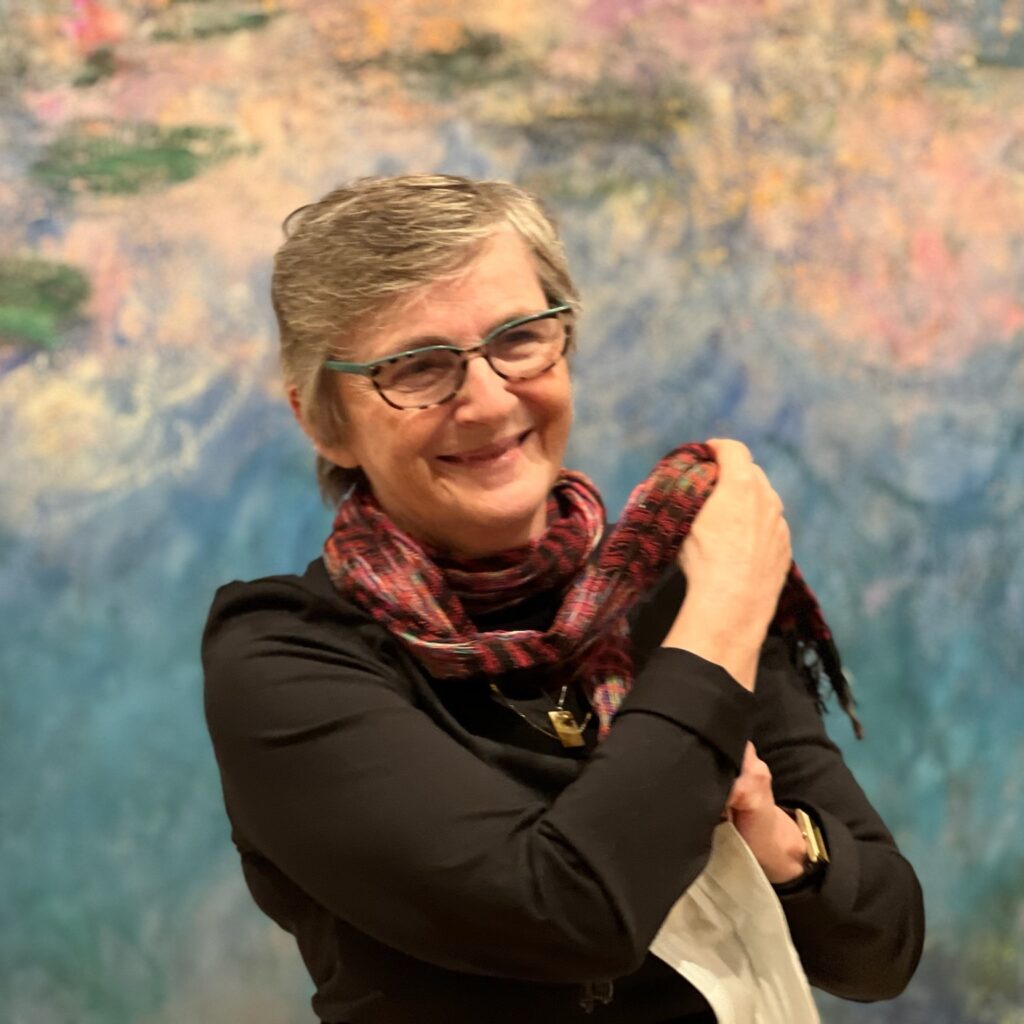
Liza Gross is senior advisor at Solutions Journalism Network. She created and launched SJN’s Local Media Project.
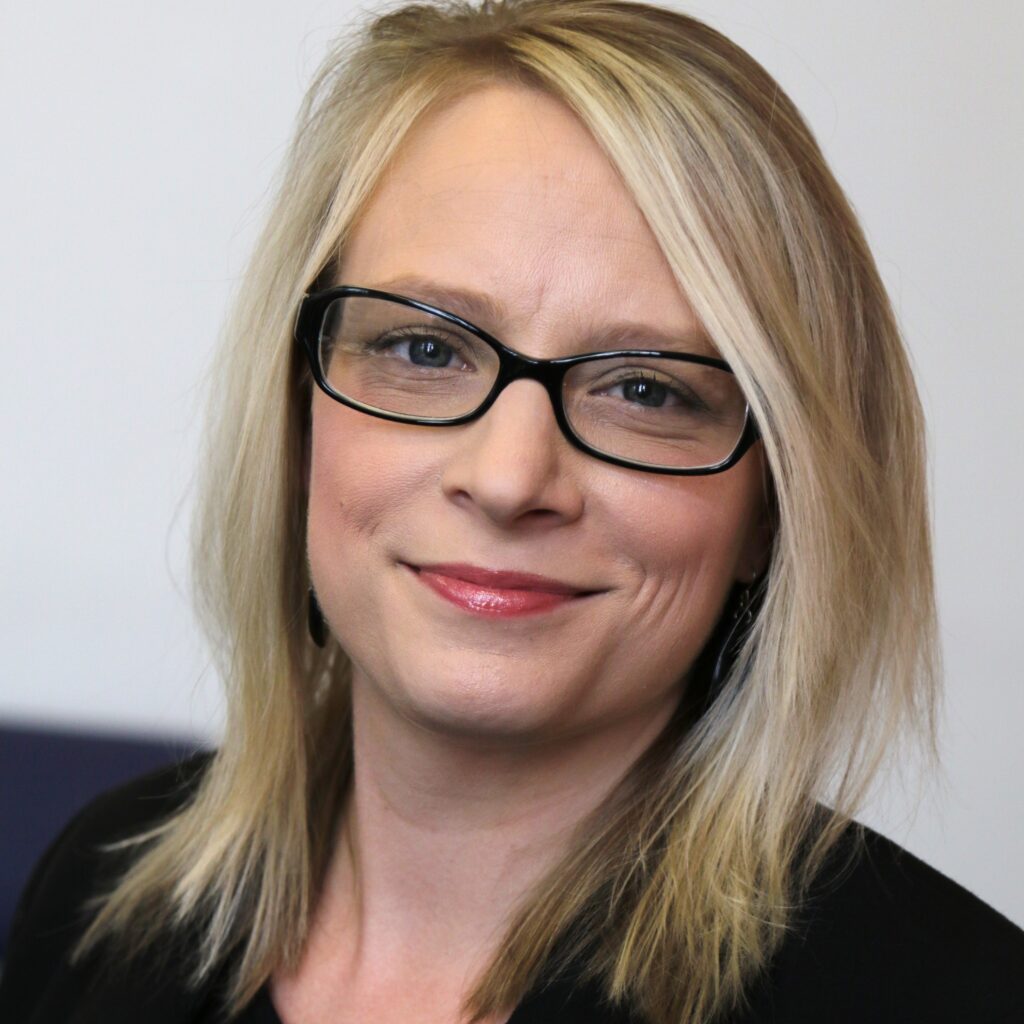
Stefanie Murray is the director of the Center for Cooperative Media at the School of Communications and Media at Montclair State University.
Featured Photo: 38996496 / Social Media News © Solarseven | Dreamstime.com
New Grant Opportunities: Partners for Places Applications Now Open!
BY TFN Staff
The Funders Network (TFN), in partnership with the Urban Sustainability Directors Network (USDN), is pleased to announce the opening of the latest round of the Partners for Places grant program.
The deadline to submit proposals is Feb. 27.
The Partners for Places matching grant program improves communities by supporting equitable sustainability projects that build partnerships between local government leaders, frontline community groups and place-based funders in the U.S. and Canada.
National funders invest in local projects developed through these partnerships to promote a healthy environment, a strong economy and well-being for all residents.
Through these investments, Partners for Places fosters long-term relationships that make our communities more resilient, prosperous and equitable.
These matching awards provide partnership investments between $45,000 and $150,000 for one-year projects, or between $75,000 and $180,000 for two-year projects. One or more local foundations are required to provide at least a 50 percent matching grant for projects.
Interested in applying?
Access the application and resource documents below. (These resources are also available on our Partners for Places home page.)
Round 21 Application and Resources
- Invitation to Apply
- Application Form
- Budget Form
- Informational Webinar | 3 p.m. ET Jan. 17: Register here.
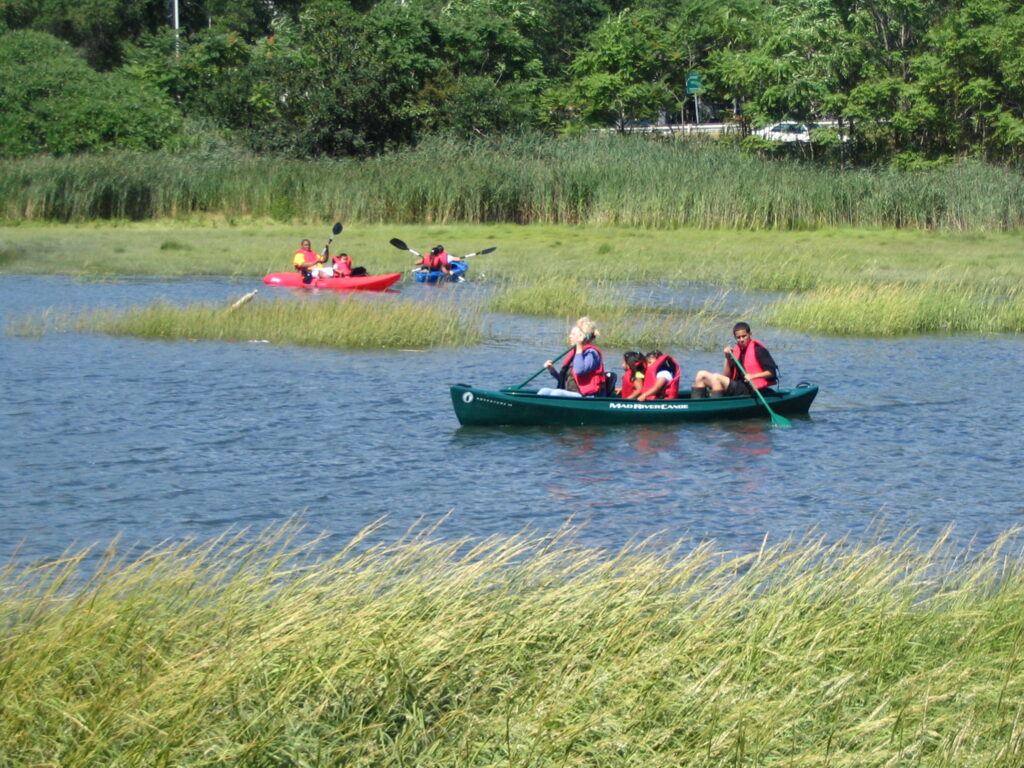
Partners for Places funds will help Chelsea, Mass. turn the Mill Creek waterfront into a vibrant and accessible area for passive and active recreation. Source: GreenRoots
About Partners for Places
Partners for Places is led by TFN in partnership with the USDN.
To date, Partners for Places has awarded $10.9 million across North America in this successful matching grant program, leading to more than $21.6 million in investments.
The matching grant program brings national funder investors together with place-based funders to support equitable and sustainable climate action and green stormwater infrastructure projects. The program is currently supported by four investor foundations: The JPB Foundation, The Kendeda Fund, The Kresge Foundation, and the Pisces Foundation.
Read about the latest round of Partners for Places matching grant recipients here.
(All grant announcements can be found on the Partners for Places webpage.)
Read about previous rounds of grants under the Meet the Grantees section of the Partners for Places page.
Submitting a Successful Proposal
Round 21 general grant funds will support:
1. Spreading of local Equitable Climate Action (ECA) and/or Green Stormwater Infrastructure (GSI) practices.
2. Advancing opportunities for local government, frontline communities, and place-based funders to build trusting partnerships and develop projects together.
The application deadline for Round 21 is Feb. 27 (by 11:59 p.m., any time zone).
Please visit the Partners for Places webpage for more information.
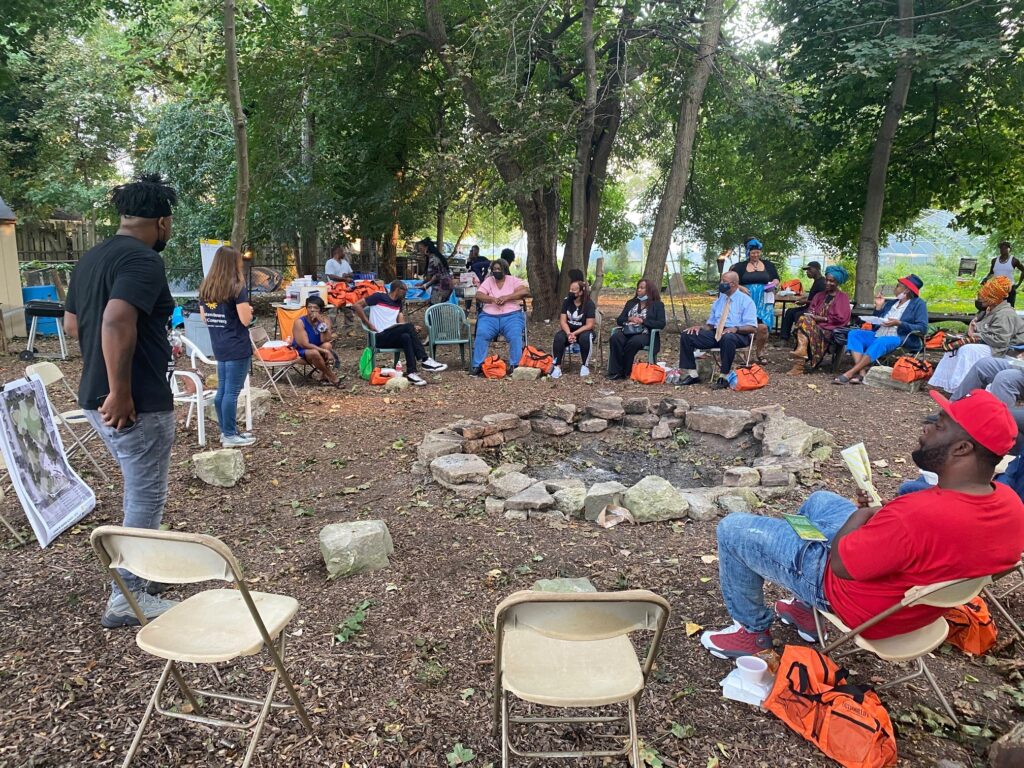
Hough community members gathered in Cuyahoga County to share their thoughts on plans to turn the site of a former primary school into a 2.6-acre park. Credit: Western Reserve Land Conservancy
Additional Resources
→ Register for our Round 21 Informational Webinar designed to help potential applicants prepare proposals, Jan. 17 at 3 p.m.ET. Register here.
→ Read this feature story about Partners for Places in Inside Philanthropy here.
→ If you have questions about the Partners for Places program, please feel free to reach out to Ashley Quintana at ashley@fundersnetwork.org.
→ Where is Partners for Places making an impact? Read previous grant announcements and explore the Partners for Places Grantee Map here.
→ Where can I learn about completed Partners for Places projects?
Visit the Partners for Places Idea Bank to explore what grantees are doing, learning and sharing.
From PLACES Fellow to President & CEO: Dion Cartwright tapped to lead The Funders Network
BY Don Hickman, Chair, TFN Board of Directors
When TFN President and CEO Pat Smith announced her retirement this summer, we began the daunting but admittedly exciting work of finding a successor – one with the vision, values and strategic dexterity needed to lead our network of changemakers committed to environmental, economic and racial justice.
It turns out we didn’t have to look very far.
I’m thrilled to announce that Dion Cartwright – TFN’s senior director of equity initiatives and leadership development and head of our PLACES Fellowship program – will be the next president and CEO of TFN.
Dion brings to her new role more than two decades of experience in the social sector and a passion for centering marginalized and underserved communities.
She also offers a singular perspective as the soon-to-be leader of this incredible network: A former program officer for the Baltimore Community Foundation, Dion is herself a PLACES Alum who went on to serve as chair of the Fellowship’s Advisory Board before joining TFN’s team full time in 2016.
Her trajectory – from funder and PLACES Fellow to TFN president and CEO – embodies TFN’s vision to cultivate courageous philanthropic leaders who are engaged, emboldened and equipped to bring about a just society.
“As both a PLACES Alum and a member of TFN’s leadership team, I’ve witnessed the tremendous progress we’ve made in advocating for community-led solutions and equity-focused actions that address an escalating climate crisis, widening wealth gap and other issues critical to our collective wellbeing,” said Dion.
“The growth I’ve seen is amazing, and the opportunities I see ahead are inspiring," she said. "I am truly honored to lead TFN as we work to create a political home for philanthropic leadership that is boldly and unapologetically committed to advancing racial equity, inclusion and justice."
Passing the Baton
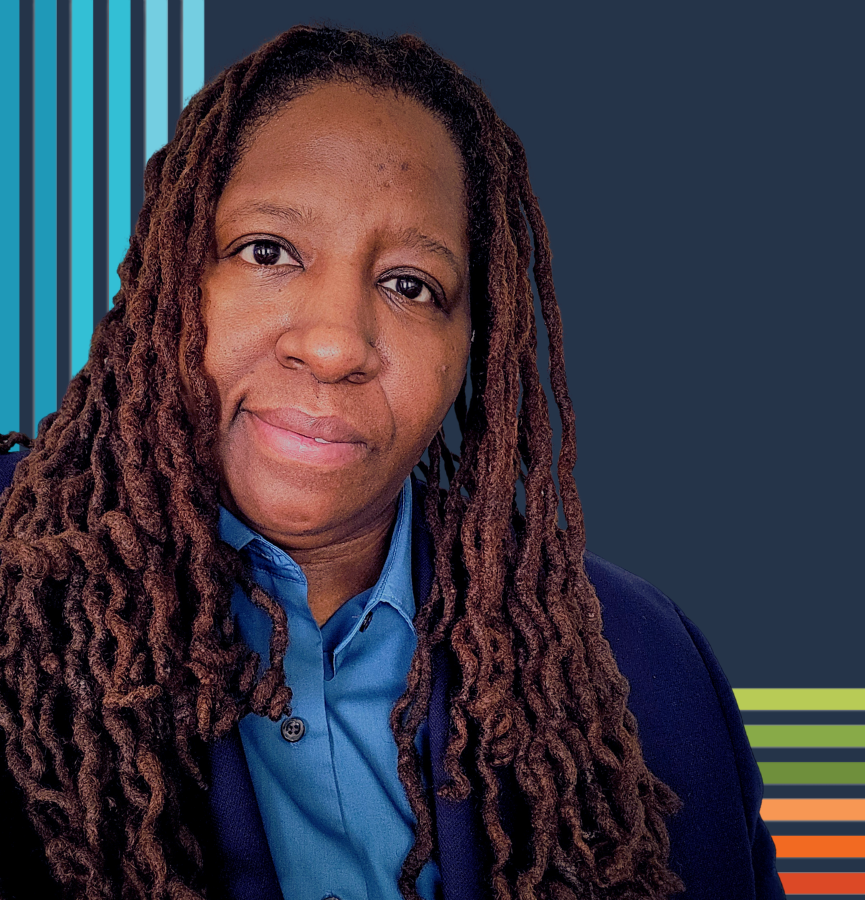 Dion will take on her new role in January, following Pat’s official retirement. We are grateful for Pat’s service to TFN over the past five years, a tenure that included helping the network and its staff weather the most challenging period of the COVID pandemic. Under her leadership, TFN also established a new strategic framework and its first racial equity action plan, ensuring TFN remains a thriving and sustainable organization with an explicit, foundational and cross-cutting approach to addressing systemic racism and its impact on the people and places we serve.
Dion will take on her new role in January, following Pat’s official retirement. We are grateful for Pat’s service to TFN over the past five years, a tenure that included helping the network and its staff weather the most challenging period of the COVID pandemic. Under her leadership, TFN also established a new strategic framework and its first racial equity action plan, ensuring TFN remains a thriving and sustainable organization with an explicit, foundational and cross-cutting approach to addressing systemic racism and its impact on the people and places we serve.
Pat is quick to note that Dion played a key role in guiding the creation of TFN’s racial equity framework, and has been instrumental in supporting a culture of accountability and transparency as we work to implement those goals.
“I’m extraordinarily excited about the next chapter for TFN under Dion’s leadership,” said Pat, who announced her planned retirement in June. “It’s been a pleasure having the opportunity to work with Dion, and I’ve benefitted from her counsel on both a personal and professional level. I’m confident she is the right person to help guide TFN toward the future.”
Shortly after Pat shared her retirement plans with the board, we hired an executive search firm to launch a national recruitment effort that resulted in dozens of highly qualified and deeply passionate candidates from across the philanthropic and nonprofit sectors.
I’d like to acknowledge my fellow TFN board members for their hard work and diligence during this process, including the board’s selection committee members.
TFN’s Board of Directors has created a transition task force that will work closely with Pat, Dion and the rest of the network’s leadership team to ensure a seamless changeover and the continued momentum of the PLACES Fellowship and Alumni Network. While we do not have immediate plans regarding who will replace Dion as head of the PLACES program, Talissa Lahaliyed, TFN’s equity programs manager, will serve as point person for PLACES during the transition period.
Power of PLACES
The PLACES Fellowship is one of TFN’s most significant efforts to foster leadership in the philanthropic sector.
Established nearly 15 years ago, PLACES – which stands for Professionals Learning About Community, Equity and Sustainability – is designed to give grantmakers the tools and resources to understand, challenge and change systemic inequities.
More than 180 PLACES Fellows have completed this rigorous program over the years. PLACES Alums hail from all corners of the United States and Canada and represent national, regional and community foundations, intermediaries, and philanthropy serving organizations.
Their impact can be seen within their own institutions and across the broader philanthropic sector. PLACES Alums have also contributed to an impressive leadership pipeline within TFN, lending their talents and expertise to our working groups, steering committees and TFN’s Board of Directors, where they currently occupy five of 13 board seats.
“PLACES was created to help funders work through the systematic challenges of creating meaningful change for underserved and left-behind communities,” said Sheena Solomon, executive director of The Gifford Foundation and vice chair of TFN’s Board of Directors. “Through Dion’s leadership the program has become a true demonstration of what racial equity work can look like in the sector.”
A PLACES Alum and chair of the PLACES Advisory Board, Sheena also chaired the board’s leadership selection committee.
“Dion’s new role is an affirmation of her impressive skills as well as TFN’s investment in her and the PLACES program,” said Sheena. “This work requires a deep level of hope and enthusiasm for the future of philanthropy. Dion carries those qualities with her everywhere she goes and there is no one better to continue inspiring them in others.”
Leadership Journey
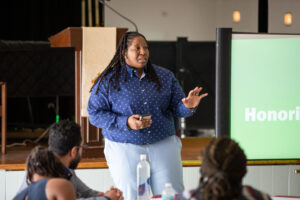 Dion found her calling to lead at an early age, starting with the youth ministry at her church in Lynchburg, Va., where her late grandfather was pastor. She also honed her skills on the basketball court, playing forward and center in local sports leagues and eventually volunteering as a youth basketball coach in the Amateur Athletic Union.
Dion found her calling to lead at an early age, starting with the youth ministry at her church in Lynchburg, Va., where her late grandfather was pastor. She also honed her skills on the basketball court, playing forward and center in local sports leagues and eventually volunteering as a youth basketball coach in the Amateur Athletic Union.
A student-athlete at Gardner-Webb University in North Carolina, where she studied computer science and business administration, Dion worked for the Baltimore Community Foundation’s Community Investment team for 15 years before joining TFN. In 2015, Dion was named one of the Daily Record’s Leading Women Under 40. She currently serves on the Board of Directors for Emerging Practitioners in Philanthropy and on the United Philanthropy Forum’s Racial Equity Committee. She previously served as the inaugural board chair of the Baltimore Children and Youth Fund, a nonprofit organization created to support Baltimore’s youth, following the death of Freddie Gray while in police custody.
She’ll continue to be based in Baltimore, which coincidentally is the site of TFN’s 2025 Annual Conference. As a reminder, we decided not to hold our Annual Conference in 2024 in order to foster a smooth and productive transition for TFN’s incoming president and CEO.
But there will be ample opportunities to connect with Dion and the rest of TFN’s team – both virtually and in person – in the coming year, including the Smart Growth California Funder Summit in Sacramento and the joint Spring Convening of our GREEN, Urban Water and Mobility & Access Collaborative funders in Austin.
“I’ve been blessed to work alongside such a talented group of individuals at TFN for so many years,” said Dion. “And I look forward to supporting a culture of shared collaboration, growth and learning as we chart a new path forward, together.”
On behalf of TFN’s community, please join me in congratulating Dion as she takes on this new challenge.
About the Author
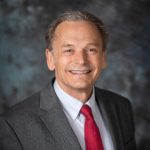 Don Hickman is chair of TFN's Board of Directors. He is vice president for community and workforce development at the Initiative Foundation in Little Falls, Minn.
Don Hickman is chair of TFN's Board of Directors. He is vice president for community and workforce development at the Initiative Foundation in Little Falls, Minn.
TFN Leadership Transition: Resources & Further Reading
Moving Forward, With Gratitude | A Message from TFN President & CEO Pat Smith
Building Equity & Igniting Action | TFN’s Strategic and Racial Equity Frameworks
PLACES X: Stories of Impact – Dion Cartwright | PLACES 10th Anniversary (Access the full multimedia PLACES X archive here.)
TFN President & CEO: Position Details and Desired Qualifications | McCormack + Kristel
➡ Become a TFN Member! | Learn More About Membership Benefits & Eligibility
Hitting Pause on Twitter/X: Our Commitment to Inclusive, Equitable Spaces – In Person and Online
BY TFN STAFF
This summer, our team decided to pause our presence on Twitter/X, given the instability of the platform — and more importantly, to gauge whether it still aligned with our values.
TFN is committed to supporting and inspiring courageous philanthropic leaders who are engaged, emboldened and equipped to bring about a just society. Social media is just one of the tools we use to connect our community of changemakers working toward racial, economic and environmental justice in communities across the U.S. and Canada.
It’s become increasingly clear that TFN values do not align with those of the social media platform formerly known as Twitter, and don’t support remaining active on this platform in its current iteration. That’s why we’ve decided not to engage on X for the foreseeable future.
Changes to the way X moderates content (including laying off thousands of people who monitored for hate speech and threats of violence) have led to increased digital harassment of marginalized communities and mis/disinformation on issues that are core to our collective health, wellbeing and shared humanity. That the platform is led by someone whose own public statements and actions undermine, or are often in open conflict with, our values also factored heavily in our decision.
We also recognize that much of the online community we’ve cultivated on this site has moved on to other platforms. We've noticed a decrease in engagement on Twitter/X while our engagement on other platforms — notably LinkedIn — has increased dramatically.
In the past few months, we’ve doubled down on other social media platforms and have improved the way our members can connect with our TFN team and with each other.
Here’s where you can find us:
- You can connect with us on LinkedIn and Instagram.
- Sign up for our newsletters and updates.
- Engage with one of our many working groups.
- If you’re a TFN member, be sure to sign up for our TFN Member Portal, which offers a host of resources — including a searchable database of funders, making it easier for you to connect and engage with other leaders in the sector as well.
TFN’s mission-driven communications goals include sharing knowledge, amplifying voices and inspiring action across our network and beyond. While we put much thought into this decision, in consultation with our team and TFN board, we know there’s not a one-size-fits-all approach to how individuals and organizations choose to connect in digital spaces.
We acknowledge that many of our members, partners and team members continue to see value in engaging on X as a means of organizing and advocating for social change, and we support their right to make decisions that suit their needs — and the communities they serve — as they see best. This decision only applies to our official TFN handle (@Funders_Network).
We’ll continue to evaluate our communications goals and strategies to ensure they remain aligned with TFN’s values of creating equitable, inclusive, constructive places to come together — both in person and online.
We encourage you to be part of this conversation, and to share your thoughts, experiences and questions with us. If you have any questions or feedback about TFN's communication goals and strategies, please reach out to Senior Communications Director Tere Figueras Negrete at tere@fundersnetwork.org.
We hope to hear from you!

New TFN Report Explores Midwest Transportation Advocacy, Funding & Opportunities
BY TFN Staff
We’re excited to share a new TFN report that examines how advocates and their foundation partners are working to build more sustainable and equitable transportation systems across the Midwest — and which includes key takeaways and lessons for funders in the region and beyond.
The Midwest Transportation Landscape Assessment: A Roadmap for Funders explores the transportation challenges and opportunities in seven Midwestern states: Illinois, Indiana, Iowa, Michigan, Minnesota, Ohio and Wisconsin.
These seven Midwest states will spend a combined $36 billion on transportation in 2023, thanks in part to landmark federal funding bills passed in recent years. This infusion is bringing renewed attention to state-level systems and structures, and to the opportunity to meaningfully reduce climate-destroying emissions.
The need for focused and funded advocacy work to ensure that the dollars are spent wisely and equitably — and that the moment is not wasted — has never been greater.
This report focuses on work to accelerate the shift to electric vehicles and increase public investment in and accessibility of transit, walking and biking. Interviews with dozens of funders, advocates, government staff and thought leaders offer a host of recommendations that can be boiled down to one imperative: Build power among those fighting for change.
Philanthropy has played a critical role in nurturing important work, advancing ambitious goals, connecting and sustaining key players across cities and states, and amplifying the concerns of those most impacted by racial and environmental inequities. Nonetheless, transportation advocacy is deeply under-resourced, particularly when measured against its climate impacts.
The goal of this report is to provide a roadmap for funders to support the growing body of work around transportation reform, including examples of philanthropic engagement and guidance for increased, effective investment.
The Midwest — the heartland of our nation — is rich with infrastructure, industry and ingenuity.
We can show the country what it takes to build a climate resilient and net zero transportation system.
— Tenzin Dolkar, McKnight Foundation
Midwest Transportation Landscape Assessment: A Roadmap for Funders
–
The Midwest Transportation Landscape Assessment: A Roadmap for Funders was researched and written by Zoe Kircos and Martha Roskowski through TFN’s Mobility and Access Collaborative.
Conducted during winter and spring of 2023, the report is based on interviews with nearly 80 nonprofit leaders, advocates and funders. It was funded by McKnight Foundation, with additional support from TransitCenter and SRAM Cycling Fund.
Martha, who is the program lead for TFN’s Mobility & Access Collaborative and principal at Further Strategies, helps agencies and organizations develop strategies to advance sustainable mobility and equitable access. Before launching Further Strategies, she helped cities build better bike infrastructure at PeopleForBikes and ran the City of Boulder’s planning, programs, and policy efforts, including launching the local bike share program. She led the campaign on the federal transportation bill that created the national Safe Routes to School program.
Zoe, a partner at City Thread, brings 20 years of philanthropy, development, communications and grant management expertise – and her own blend of humor and compassion – to all her work. Building thoughtful collaborations and centering the needs and vision of project partners has been an essential part of her approach since entering the non-profit field. Zoe is recognized for her efforts to integrate equity into shared micromobility and disseminate the stories of people doing innovative and powerful social and transportation justice work in their communities.
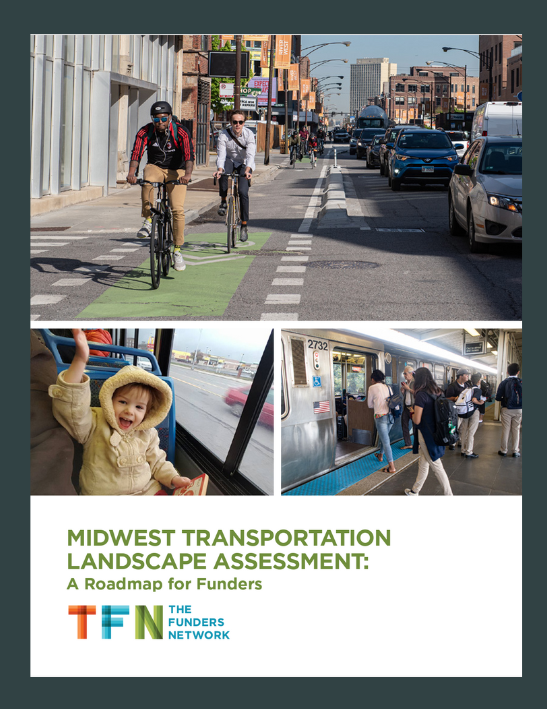
➡ Download the full report & executive summary
➡ Access a web-friendly version
Connect & Engage
TFN’s Mobility & Access Collaborative is an action-oriented effort that recognizes the urgency for ambitious and quickly implemented solutions to limit the devastating impacts of climate change. The collaborative brings together place-based, regional and national funders to share stories, examine best practices and explore critical issues.
➡ Do you want to receive newsletters and other resources from TFN’s Mobility & Access Collaborative? Sign up here!
➡ Do you want to connect with fellow grantmakers interested in mobility and transportation issues in the Midwest? TFN’s Member Portal offers a database of funders searchable by geographic region, areas of interest, and more!
(Please note that the Member Portal is only available to those affiliated with TFN member organizations. Visit our Become a Member page for more information on membership categories and benefits.)
Introducing TFN's New Member Portal!
BY Tere Figueras Negrete, Senior Director of Communications
You asked, we listened...
We’re excited to announce that TFN's new Member Portal is live on our website!
This password-protected, member-only portal is designed to support collaboration, deepen understanding and spark connections within our network and beyond.
Funders across TFN's community of working groups, initiatives and other programs have often asked for a way to reach out to fellow grantmakers who are based in their area or working on similar issues.
Our new peer-to-peer platform will allow TFN members to do just that, as well as access learning resources and recordings, update individual TFN profiles, and engage with our working groups.
How do you access TFN's Member Portal? Just fill out this simple sign-up form. You'll then receive a welcome email with your username and login instructions.
Here's what you'll be able to do once you have access:

➡ Curious which funders are active in the Southwest? Or who has an interest in environmental justice?
Our Funder Directory is a searchable database of funders whose organizations are members of TFN, or who have engaged with TFN events and programming in the recent past.
You can search by several categories, including by funder name, organization, geography and topics of interest.
Tip: You have control over what information is shared about you in the Funder Directory. Use the Update Your Profile tool to manage your contact information, areas of interest and sharing settings.

➡ Did you miss TFN's latest webinar? Are you eager to dive deeper into a resource shared during an event?
Explore the Event Resources featured on TFN's Member Portal, which include recordings of our learning events and accompanying resources.
Please note that we're only sharing recordings from the relatively recent past, and only when participants have been alerted that the event is being recorded. For example, certain peer-to-peer learning sessions and other virtual convenings have not been included, as facillitators often ask for those events to remain "off the record" to encourage frank exchanges of ideas and experiences.
Tip: This feature also links directly to TFN's Event Calendar, so you can see and sign up for future events.
We'll continue to add to this section, so be sure to check back and see what's new!

➡ Do you want to get involved in a TFN working group? Or maybe share your new title or expanded grantmaking portfolio?
Update your TFN Program Affiliations in the Member Portal, which features a menu of our working groups and collaboratives. Follow the links to learn more about each program area and sign up to indicate your interest in receiving news, updates and invites to webinars and other learning opportunities.
Tip: If you want to see which funders are engaged in what TFN working group, just search the Funder Directory under "program participation."
Do you want to let us know that you've changed jobs, or share more about your grantmaking focus? Click on the Update Your Profile to access your individual TFN profile, allowing you to make updates to your title, organizational affiliation, focus area, and other information.
Updating your profile information will help enrich the Member Portal overall — making it easier for you and others in the network to engage with fellow funders whose grantmaking interests align.

Why can't I access TFN's Member Portal?
Please note that you must be affiliated with a TFN member organization in order to access TFN's Member Portal. If you don't see your organization listed on the sign-up form, but believe you are affiliated with a TFN member organization, please reach out to membership@fundersnetwork.org. (Learn more about TFN membership options on our website.)
Does the Funder Directory only include funders who work at TFN member organizations?
Nope! Any funder who has engaged with TFN in the recent past, including attending our Annual Conferences or learning webinars, and who have agreed to share their information are included in the Funder Directory. (You'll see a checkmark noting which organizations are TFN members.)
What if I don't want my information included in the Funder Directory?
No worries. You can update your sharing settings in the Update My Profile section.
What if I see someone listed who no longer works at my organization?
Please let us know! Kindly send an email to membership@fundersnetwork.org and we'll follow up.
Is there a Member Portal Code of Conduct?
You betcha. We want to ensure that TFN’s Member Portal remains a considerate, caring and useful resource. You'll be asked to agree to our Code of Conduct when you sign up for the portal, acknowledging that:
- TFN does not allow language that harasses, threatens or defames others, or language that is derogatory toward people or communities based on, but not limited to, race, ethnicity, gender, sexual orientation, gender identity, religion or ability status.
- TFN does not allow the data and resources found on the portal to be downloaded or repurposed in any way without appropriate consent of relevant individuals and creators. In particular, do not add contact information found on the portal to your organization's databases without consent of the individual contact.
- You will not use the portal as an opportunity for fundraising pitches or any other solicitations for financial or contractual support.
- Electioneering or lobbying activities are prohibited. (For guidance on how to effectively advocate as a nonprofit or philanthropic organization, we encourage you to visit the resource pages for Bolder Advocacy, a program of the Alliance for Justice.)
Do you have additional questions or feedback about TFN's Member Portal? Please reach out to our team at membership@fundersnetwork.org.
Going PLACES: Heartache drives my purpose
BY Ronda Lee Chapman, National Equity Director, Trust for Public Land, and 2023 PLACES Fellow
"Keep Portland Weird" is a vibe, albeit one that has perhaps run its course.
I lived in Stumptown for just over a decade in the early aughts. It’s where I cut my teeth as a sustainability generalist, dug deep into diversifying the environmental movement, and gained a rich understanding of what it takes to bring an equitable city to life or not.
The 2023 PLACES Fellows gathered in Portland, Ore., for our first retreat in April. I was both excited and anxious to revisit the place that had shaped a significant decade of my life professionally and personally. I was ready to experience the liberal vibrancy, the amazing food, the emerging multiculturalism, the liberal politics.
What happened instead was profoundly different.
Well, except for the rain. That was consistent and appropriate.
Before I go further, I feel compelled to shout out to this blog by another member of our 2023 PLACES cohort, Shilpa Shankar, that shares not only her beautifully worded reflections, but some of the details about our Portland journey. My point of view will be a touch different due to my previous relationship with the town.
As my co-fellow Joy Webb and I were walking through downtown, we talked about what I coined “the myth of the liberal west:” the notion that the Best Coast is rife with utopian opportunities in which rainbows and unicorns (Black and white ones!) are abundant. A place the rest of the liberal U.S. can look upon with envy and aspiration. It’s climate ready, Mother Earth-loving, vegan friendly, creative, kind, multicultural, and equitable.
But as Joy and I stepped over puddles and around unhoused human beings slumped against buildings, things felt heavy.
As we ventured on to the light rail, we noticed most riders relied on the train to keep them dry, provide a space to sleep, and offer shelter for soothing their addictions.
How can it be that so many folks meandering through the city could be in such need? Why were there so many security guards posted at the entry of commercial buildings? Why was the CVS essentially void of products? Why was there such a prevalence of closed businesses? Why were the downtown streets void of locals? What was happening to this place I once called home?
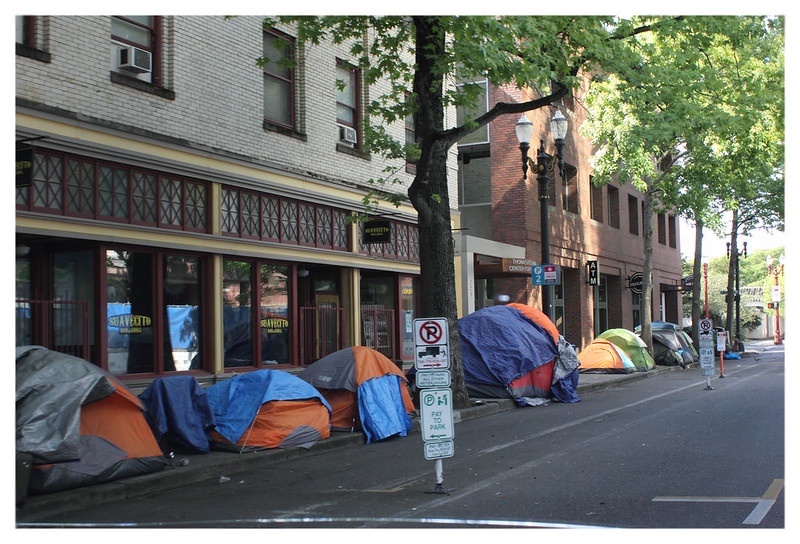
Portland, like many cities, is struggling to address the needs of unhoused people, many of whom rely on tents for basic shelter.
Photo credit: dr.ōzda | Flickr
Since PLACES was there, I took the opportunity to join a longtime Portland friend for a walk at Mt. Tabor one evening. She shared what she and her husband had been experiencing in town. They recently moved to an adjacent county because Portland was taking a turn for the worse and they no longer felt safe from street harassment and multiple home and car burglaries. It was affecting their psyche and their wallets.During my 2001-2012 stint in PDX, local residents seemed to be forever protesting for any matter pertaining to justice and equity. Protests were part of the fabric and while it wasn’t my vibe, I was always pleased to see people organizing for the ideological opportunities I mentioned before. But then came 2020, when the whole world was protesting for social justice. While I was no longer in Portland, I’ve been paying attention. Liberals were protesting per their norm, but it seems like something just snapped and they haven’t recovered.
According to an Oregon Public Broadcasting report from July of this year, hate crimes for the state are up 76% since 2020. “Anti-Black/African American bias continues to be the largest category, making up a quarter of the reports. Bias-motivated reports targeting people who identify as LGBTQ+ increased between 2021 and last year, with reports targeting sexual orientation up 97% and gender identity up more than 150%. Reports targeting religion also increased, with antisemitic reports making up 75% of anti-religious reports since 2020. Anti-Asian reports decreased slightly last year compared to 2021 when such reports rose as a result of hateful rhetoric related to the COVID-19 pandemic.” Portland’s and Oregon’s bigotry-filled,racist origin story has reared its ugly head.
It's also an economic issue — though poverty and racism are so intertwined, so no surprises there. I found this article from the Willamette Week, the local paper. The report refers to an “out migration” over the past three years. “Most of the people who spoke with WW were leaving for two reasons: high taxes and a growing sense of danger.”
According to a lifelong Portland resident quoted in the article, up until 2020, “[n]obody ever wanted to leave Oregon. It’s a beautiful place. Most evacuees are high-wage earners who are fed up with the crime, taxes and homelessness, in that order. There’s an ugly spiral.”
Listen, if you don’t know me, you might think I’m a bit of a downer at this point.
But it’s precisely because I am, by nature, a joyful soul whose heart was aching at what I witnessed. I regard Portland as a place that set me up for many of the successes I experience today.
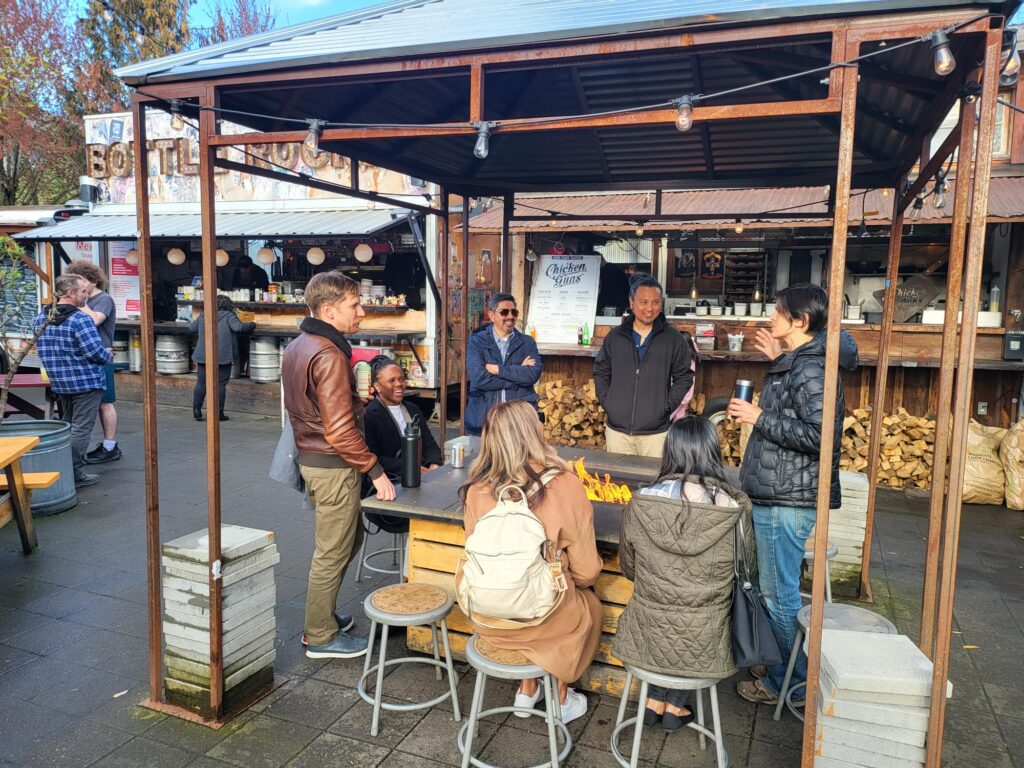
2023 PLACES Fellows traveled to Portland, Ore., for the first site visit of their year-long learning journey.
Photo credit: Dion Cartwright
Then it occurred to me on my flight home to D.C.: this is why I am here with PLACES and in the nonprofit sector.
This heartache drives my purpose because I believe in justice, humanity, equity, and fairness.
And I am aware of the role philanthropy plays in addressing some of these issues — for better or worse.
So here we are. Collectively learning, adapting, and pushing to be on the right side of history. We are the consciousness-keepers who provide the wood for the organizers to build the table.
It’s so important for us who claim space in philanthropy to get out from behind our desks and get into the community. But given the demands of our jobs and everyday lives, it can be difficult for us to do so.
That’s one of the many gifts PLACES offers: The fellowship’s site visits are both an opportunity and a reminder to be intentional in finding time to physically and mentally be in the spaces and places most impacted by injustice.
Even if — especially if — it makes your heart ache.
About the Author
Ronda Lee Chapman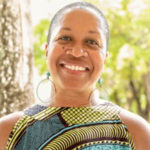 is the National Equity Director at the Trust for Public Land, where she works to bring parks and nature to the places, people, and communities that can most benefit as a matter of health, equity, and justice. She is also a member of TFN’s 2023 PLACES Cohort.
is the National Equity Director at the Trust for Public Land, where she works to bring parks and nature to the places, people, and communities that can most benefit as a matter of health, equity, and justice. She is also a member of TFN’s 2023 PLACES Cohort.
Featured image at top: Portland skyline, Jonathan Miske | Flickr

